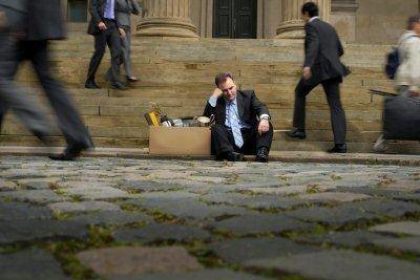
Tipp FM Legal Slot – 20th May 2014 – Bankruptcy.

On Tipp FM John M. Lynch spoke to Seamus on “Tipp Today” about Bankruptcy.
[soundcloud id=’165875748′]
Bankruptcy is now a real way out for those people drowning in debt. Many people can be mis-informed or simply not know what the process is about. Here is a whistle stop tour of the main points..
What is Bankruptcy – The New Dawn and the Way Forward?
Bankruptcy is a process where the assets of a person are transferred to a person called the Official Assignee. The Assignee’s job is to liquidate all assets for the benefit of creditors. When sold, the costs, expenses, court fees and certain priority debts of lenders (such as revenue liabilities, local rates, certain employees’ entitlements etc) are paid. After this, the proceeds are divided between all other creditors.
The Debtor is then subject to the Bankruptcy period of 3 years after which they are essentially debt free.
If the Debtor is earning they may lose control of their income for 5 years – from when they are declared bankrupt. This means that you will only enough money for your reasonable living expenses. This sum of money is based on Guidelines and anything over and above this will be put towards the payment of your debt.
How does a someone become Bankrupt?
The Debtor applies to the High Court for an order of Bankruptcy or one of their creditors can apply also. Debts must exceed assets by at least €20,000 to make an application
Will others know that I have been made bankrupt?
Yes, your name will appear on a register on the Insolvency Service of Ireland website. Any member of the public has access to this register.
What is the effect of bankruptcy?
After the 3 year period all your existing debts are written off.
However, while bankrupt:
- Your assets, including any bank accounts, are frozen;
- You will be interviewed at the Assignee in Bankruptcy Office or over the telephone;
- You must disclose all your assets, liabilities and earnings;
- You cannot get credit over €635 without disclosing that you are bankrupt;
- You cannot act as a director of a limited company or be involved in its management without court permission;
- you cannot be involved in a partnership.
You can:
- Earn money either as an employee or self-employed trading under the bankrupt name;
- Operate a bank account though this will be in credit at all times;
- have a motor vehicle if a necessity ;
- Retain household furniture sufficient for the basic domestic needs of yourself and your family up to €6000.
If property or any other assets remain unsold when your bankruptcy finishes it remains in the ownership of the Assignee to sell.
If you get any legacy or windfall during Bankruptcy, you must tell the Assignee who can claim it for the creditors.
You should fully co-operate and disclose your earnings and assets to the Assignee. If not, you run the risk of prolonging your Bankruptcy period to 8 years.
Can my family home be sold?
In bankruptcy technically yes. The High Court must authorise the sale. It can postpone the sale of the family home in the interests of the lender and of any spouse and dependants of the bankrupt.
If it is owned jointly, this would lead to the joint interest being split and each party taking a separate share.
The Official Assignee has indicated that he is prepared to do deals with the other joint owner in such a scenario. Therefore a non bankrupt joint owner they could buy out the half share of the bankrupt from the Assignee.
In reality a lot of lenders may choose to keep a secured asset out of the bankruptcy process.
What are your options?
If you, or someone you know is interested in exploring Bankruptcy feel free to contact us .

